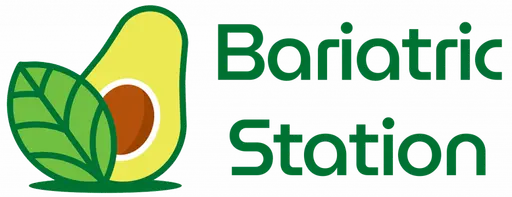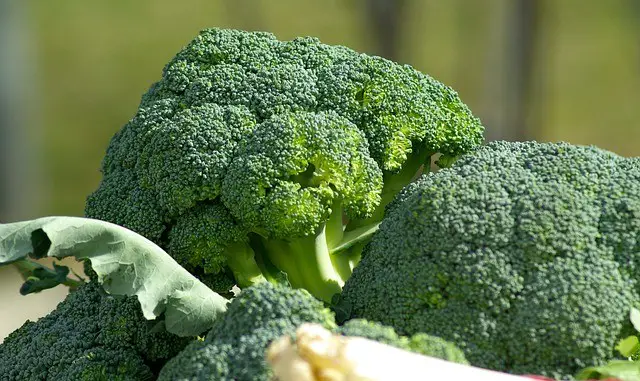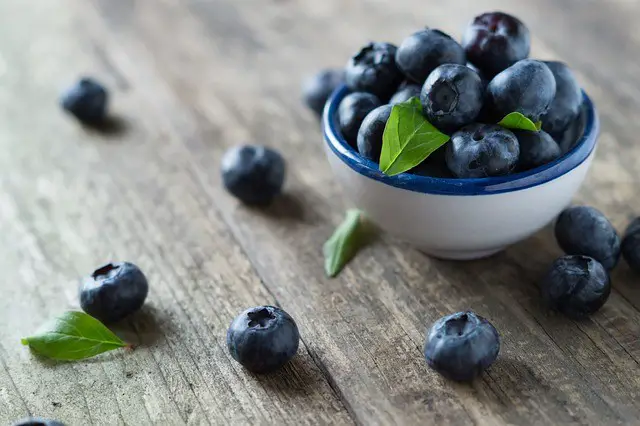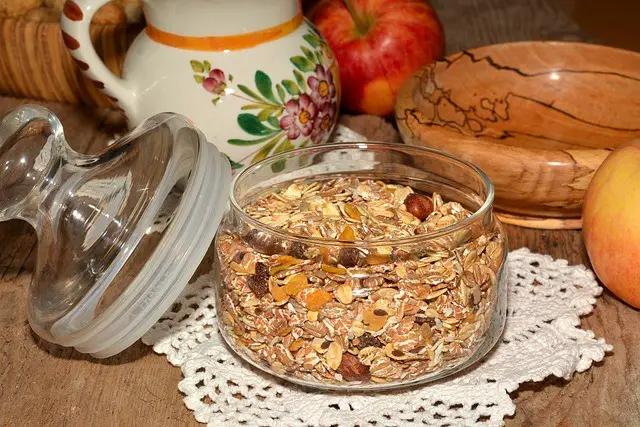When on a low-carb, high-fat diet, your carb intake is mainly from non-starchy vegetables that will not spike your blood sugars and kick you out of ketosis. Green vegetables are recommended because other than being low in carbs, they are rich in a variety of essential nutrients needed for body function.
One of the vegetables most dietitians advocate for is broccoli and today we are going to know why! Our discussion will be around all things broccoli, including steamed broccoli carbs, the health benefits of fresh broccoli, the nutrition facts of these cooked veggies, and the best way to eat them for weight loss. It’s going to be steamy!
Steamed Broccoli Nutrition Facts
According to the USDA, half a cup serving of steamed broccoli contains:
- Energy: 27.3 kcals
- Water: 69.6 g
- Protein: 1.86 g
- Total fat: 0.32 g
- Fatty acids, total saturated: 0.062 g
- Fatty acids, total monounsaturated: 0.031 g
- Fatty acids, total polyunsaturated: 0.133 g
- Cholesterol: 0 mg
- Carbohydrate, by difference: 5.6 g
- Maltose: 0 g
- Glucose: 0.382 g
- Fructose: 0.577 g
- Sucrose: 0.062 g
- Lactose: 0 g
- Starch: 0 g
- Total dietary fiber: 2.57 g
- Calcium: 31.2 mg
- Sodium: 32 mg
- Magnesium: 16.4 mg
- Phosphorus: 52.3 mg
- Iron: 0.523 mg
- Manganese: 0.151 mg
- Niacin: 0.431 mg
- Vitamin C, total ascorbic acid: 50.6 mg
- Vitamin D: 0 µg
- Lutein+zeaxanthin: 842 µg
- Vitamin E (alpha-tocopherol): 1.13 mg
- Vitamin K: 110 µg
- Potassium: 229 mg
- Folate: 84.2 µg
- Lycopene: 0 µg
- Carotene, beta: 725 µg
- Carotene, alpha: 0 µg
From this, you can tell that broccoli is a nutrient-dense food.
Steamed Broccoli Carbs
Carbs are an important aspect when you are restricting carb intake. Knowing the carb count of food will enable you to stay within your recommended carbohydrate intake on a ketogenic diet. Let’s find out the nutrition facts of steamed broccoli to know its net carb content.
There are 4 types of carbs, sugars, starch, dietary fiber, and sugar alcohols. From broccoli nutrition facts you can see that steamed broccoli carbs are from sugars and total dietary fiber since it has zero starch.
Sugars in broccoli include sucrose, glucose, and fructose. The net carbs in broccoli, found by subtracting total dietary fiber from total carbs are 2.03 g. This qualifies broccoli as a low-carb food.
The glycemic index (GI) is a figure that rates how much a portion of food with carbs can increase your blood sugar level. The GI of fresh broccoli is 10, while the glycemic load (GL) is 1. The GI of cooked broccoli is 45, while the GL is 3.1. Simply put, cooking broccoli changes how it affects blood sugars. But in both cases, it qualifies as a low-carb food.
Dietary Fiber
Fiber is prebiotic that promotes your gut health. One cup serving of fresh broccoli will provide you with 2.2 g of fiber, meeting 8% of your daily recommended value. Fiber is also essential for promoting heart health, the immune system, and weight loss.
Micronutrient Content in Cooked Broccoli
You know you have hit the jackpot with broccoli because of the vitamins and minerals you can get from eating both cooked and raw broccoli.
- Iron: Broccoli can count as an iron-rich food. Iron plays a vital role in the body in carrying oxygen in your blood. Lack of adequate iron in your diet leads to iron deficiency anemia.
- Manganese: You can find manganese in high amounts in fruits, grains, and legumes. Since these foods are prohibited on a low-carb diet, then it is wise to get your manganese from veggies like broccoli.
- Vitamin C, total ascorbic acid: If you’re looking for a vitamin antioxidant, then total ascorbic acid is your guy! In addition to reducing inflammation, vitamin C plays a significant role in healing and improving immune function.
Your body cannot make vitamin C on its own, so you get all of it from your diet. The good thing is berries and vegetables that are keto-friendly are rich in vitamin C. If you don’t meet your recommended vitamin C intake, then supplementation is always a good option to help meet the difference.
- Folate (vitamin B9): Folate is important for cell growth, the formation of red blood cells, and the prevention of birth defects. If you are pregnant, consider making broccoli your best friend.
- Potassium: You need potassium to ensure your cells and nerves function normally. It is also essential for blood pressure regulation since it is needed for water retention.
- Vitamin E: A cup serving of raw broccoli contains 0.7 mg of vitamin E (alpha-tocopherol). This fat-soluble vitamin is an important antioxidant necessary for immune health.
- Calcium: You can get 47 mg of calcium from consuming one large head of broccoli, meeting 7% of your required daily intake of calcium. Calcium is important for strengthening bones and teeth.
Broccoli also contains small amounts of other vitamins like niacin, beta carotene, vitamin K, and vitamin D. Where it lacks lycopene, it compensates for other carotenoids.
Antioxidant Plant Compounds in Broccoli
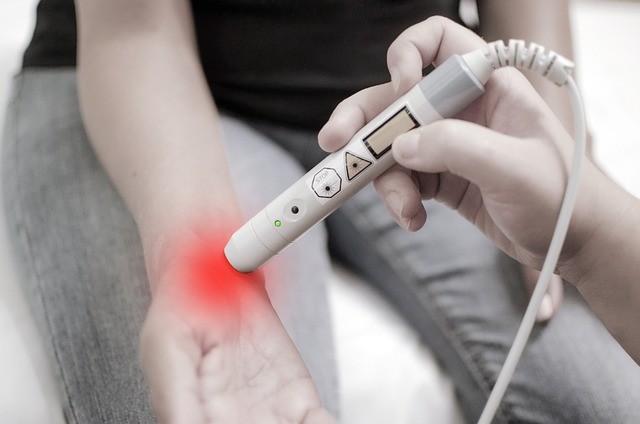
Alpha-tocopherol, vitamin C, and beta-carotene are great antioxidants that help reduce oxidative stress in the body. Although, vitamins are not the only antioxidants present in food. Other plant compounds in raw and cooked broccoli help reduce the risks of chronic diseases.
Together with beta carotene, vitamin C, and vitamin E, here are the compounds in broccoli that help lower inflammation:
- Carotenoids: beta carotene, lutein, and zeaxanthin are essential for promoting eye health. Lutein and zeaxanthin act as natural sun blockers against harmful blue light.
A study done on older adults showed that consuming 6 mg of lutein and zeaxanthin per day lowered muscular degeneration by 43%.
- Quercetin: Individuals with hypertension can get blood pressure-lowering benefits from this antioxidant.
- Glucosinolates and isothiocyanates: Broccoli contains the isothiocyanate, sulforaphane that protects against cancers by inducing mammalian cytoprotective proteins.
- Indole-3 carbinol: This phytochemical is found in foods belonging to the cruciferous family, including cauliflower. Indole-3 carbinol protects against cancer.
- Kaempferol: This is a flavonoid found in broccoli, tea, cabbage, and strawberries whose intake has been associated with reduced risks of developing cancer and cardiovascular disorders.
Intake of kaempferol has shown antimicrobial, anticancer, cardioprotective, neuroprotective, antiallergic, and antidiabetic results.
To the million-dollar question, why should you eat broccoli?
What are the Health Benefits of Eating Broccoli?
Here are some reasons why broccoli should land first place in your list of veggies:
Anticarcinogenic Properties
All the phytochemicals in broccoli have anticarcinogenic properties helping with the treatment and reducing disease progression of cancers. Research has shown that consuming foods from the cruciferous family like cabbage, cauliflower, and broccoli has been associated with lower risks of colorectal, lung, pancreatic, breast, prostate, and stomach cancer.
These benefits are attributed to the flavonoids and antioxidants that broccoli contains.
Improves Lipid Profile
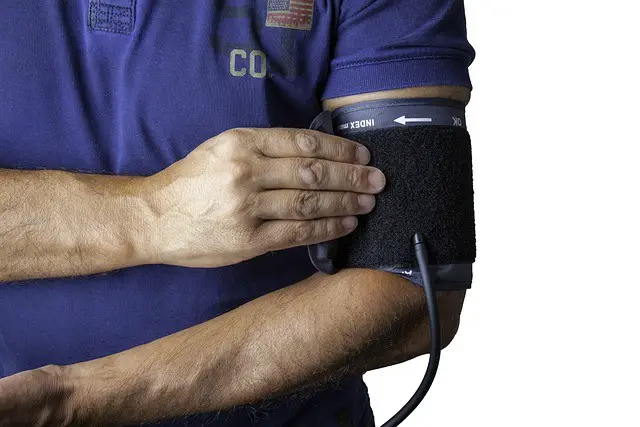
Taking a look at the nutrition facts, you will note that broccoli is low in fatty acids. The fatty acids are under total saturated, total polyunsaturated, and total monounsaturated fatty acids. Broccoli contains no trans-fat.
A small amount of total saturated fatty acid is okay for your heart, if not consumed in excess. Having a good amount of total monounsaturated and total polyunsaturated fatty acids is beneficial since they help lower low-density lipoprotein cholesterol (LDL) and increase high-density lipoprotein cholesterol (HDL).
Cholesterol is essential in the production of bile acid. Steamed broccoli has been shown to improve bile acid binding in the gut, increasing the amounts being released and preventing them from being reused. This means new bile acids will be made from cholesterol rather than from old ones, reducing cholesterol levels.
A study showed that steaming vegetables improved their bile binding capacity increasing the utilization of cholesterol to make bile and lowering fatty acids absorption. Note that secondary bile acids place you at a high risk of developing cancer.
Good for Your Eyesight

As discussed earlier, lutein and zeaxanthin reduce age-related muscular degeneration which can impair your vision.
Vitamin A is important for your eyes, its deficiency can lead to night blindness. Broccoli contains beta carotene that your body converts to vitamin A. Do not depend on broccoli alone as your source of vitamin A to improve vision since it only contains 1% of your daily value. Consider incorporating other vitamin A-rich foods into your diet to meet the difference.
Anti-helicobacter
Studies have shown that sulforaphane in broccoli has antibiotic properties against Helicobacter and can be used to treat Helicobacter pylori.
Cons of Eating Broccoli
Their high niacin, vitamin C, vitamin E, and antioxidant content make broccoli a star in the vegetable world. Moreover, their low energy content makes them great for weight loss. But it would be a mistake to overlook the negative effects of eating this veggie.
Broccoli is high in vitamin K1 which may interact with blood thinner like warfarin. Speak to your doctor before you bring broccoli into the picture in your salad.
Broccoli should be avoided if you have thyroid problems because it contains goitrogens, compounds that can alter thyroid function. Cooked broccoli is okay for such individuals since heat can destroy the enzymes that activate goitrogens. Leave raw broccoli to those without such health concerns!
How to Cook Broccoli
We have discussed the benefits of eating broccoli, but most people are wondering how to cook these vegetables. Here are three ways to prepare your cooked broccoli:
Boiled Broccoli
This is easy to make boiled broccoli recipe and will only take 10 minutes tops (for both preparation and cooking).
Ingredients
- 1-pound broccoli
- 1 pinch of pink salt
- 1 lemon, sliced(optional)
Direction
- Wash your broccoli, peel the stems, and trim your broccoli where the florets branch.
- In a pan, add salt and water and bring to a boil. Add your broccoli and cook uncovered until tender for 2 minutes.
- When ready, the broccoli should be drained into a colander.
- Serving should be done while hot, with lemon slices.
Steamed Broccoli
One of the healthiest ways to eat your broccoli is steamed. This is also another easy recipe for your go-to side dish. Please be careful not to overcook your broccoli. Steaming for 1 or 2 minutes more can discolor your veggies!
Ingredients
- Water
- 1 pinch of salt
- 1-pound broccoli
Direction
- In a pan, put an inch of water and salt and then bring to a boil.
- Place a steamer basket on top of your pan.
- Place your drained broccoli in the steamer basket and allow it to steam on medium heat.
- Cover the basket and allow it to steam for five minutes.
Sauteed Broccoli
For an easy sauteed broccoli dish, this recipe should do the trick. Those people who like flavor and a change from the rather bland steamed or boiled broccoli can enjoy this dinner recipe!
Ingredients
- 1 large head of broccoli
- 1/2 bulb of garlic, minced
- 1 pinch of pink Himalayan salt
- 1/4 cup olive oil
Directions
- Wash your broccoli in running water and chop them into florets.
- In a pan, heat olive oil on medium heat. Add your garlic, and once they start browning and producing a fragrance turn off your heat.
- Add your drained broccoli and cook on medium heat until the broccoli starts to brown a bit.
- Add water, cover, and cook for 3 minutes or until tender.
- Serve when hot.
Is It Healthier to Cook or Steam Broccoli?
Most people wonder, to boil or steam? The general rule of thumb for vegetables is reducing cooking time, water, and temperature. So, between boiling and steaming which one requires less temperature, takes a shorter time to cook, and requires a minimum amount of water?
Steaming is the better alternative. This is because it doesn’t use any water, therefore there’s no leaching and it takes a shorter cooking time.
Boiling veggies leaches out water-soluble vitamins like vitamin C from your veggies lowering their nutritional value. The only way boiled broccoli is even if you drink the water alongside your veggies.
Steaming also increases the bile acid binding capacity of broccoli lowering fat absorption.
What is the Healthiest Way to Eat Broccoli?
You can never go wrong with eating your broccoli raw. The best way is to not cook them or steam them for two to three minutes. Cooking increases the glycemic index and glycemic load of broccoli meaning it enhances how this veggie affects your blood sugar.
Moreover, cooking destroys enzymes and phytochemicals that are essential for fighting cancer.
What Can You Add to Broccoli to Make It Taste Better?
The taste of boiled or steamed broccoli can be bland to some people. Steamed broccoli carbs are low making them ideal for a low-carb diet. But a keto diet requires high fat to enable your body to maintain ketosis. Here are ways you can add flavor to your broccoli and increase your fat intake.
- Add salt, black pepper, or other spices.
- Sprinkle lemon juice on your steamed or boiled broccoli.
- Pour unsweetened soy sauce on your broccoli.
- Try making buttered broccoli for the additional fat!
- Baked cheese broccoli will not only increase your meal’s fat content but will also improve its flavor.
- Vegans can go for the coconut broccoli soup! This adds variety to your diet. The coconut milk makes your broccoli creamy and delicious. Plus, this is a good alternative to regular meat or animal protein soups. Of course, I’d mention its impact on your fat intake and enhancing ketosis!
Why Not Eat Broccoli Every Day?
Broccoli is a great meat substitute on a plant-based diet. But is it healthy to eat broccoli every day? It may not be a great idea to eat broccoli every day. This is because of the goitrogens that it contains.
Goitrogens are compounds that suppress how your thyroid functions. Your thyroid gland is involved in the regulation of iodine in the body. Goitrogens interfere with iodine absorption because the thyroid gland becomes inflamed which leads to goiter.
Broccoli also contains thiocyanates that can lead to hyperthyroidism which is associated with weight gain, hair loss, and fatigue.
Furthermore, it is high in fiber which in excess could cause bowel irritation.
Eating broccoli in moderation can yield more benefits for you rather than eating them daily.
Final Thoughts
Broccoli qualifies as a keto food because of the low steamed broccoli carbs. Eating this vegetable will have you enjoying so many benefits from meeting nutrient requirements to better cell and body function. However, they may not be the best option for an everyday dinner dish since they are high in goitrogens that affect thyroid function.
I am curious, how do you eat your broccoli? What do you add to them to make them taste better? Let me know in the comments below!
